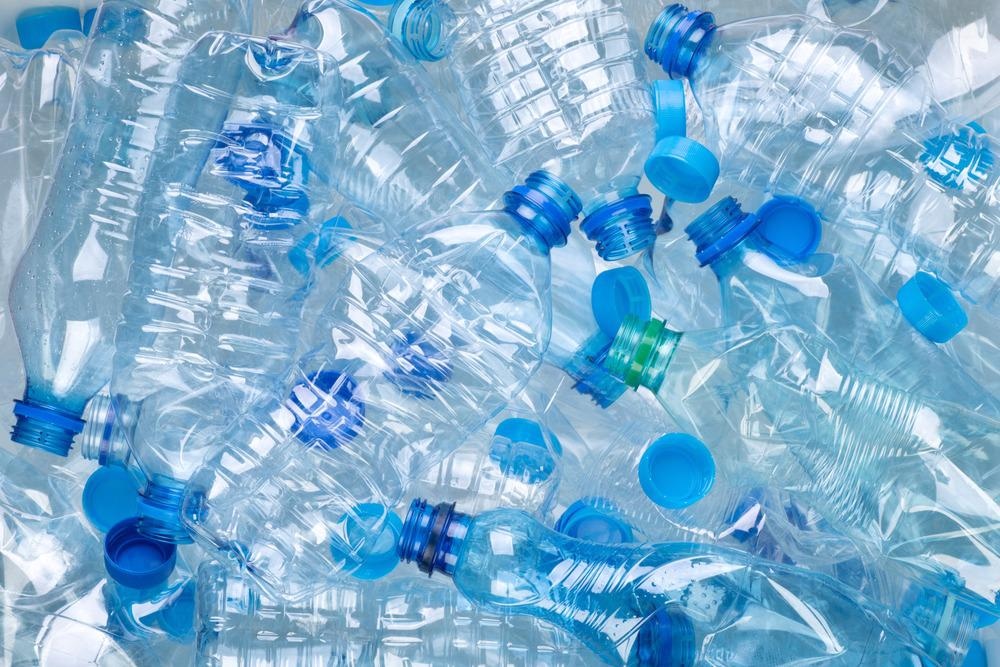Achieving a fully circular economy with maximum recycling is important for the future of sustainable manufacturing. Unfortunately, packaging often hinders recycling efforts because it contains elements that cannot be recycled and are difficult to separate from recyclable materials. Magnomer, an innovative packaging materials start-up, is using magnetizable ink to remove those impurities and allow for more complete recycling.

Image Credit: photka/Shutterstock.com
The Problems with Plastic
Producing virgin plastic feedstocks generates large amounts of carbon emissions as well other toxins that leach into the environment. If these feedstocks are used for packaging and then discarded, they degrade ecosystems on land, rivers, and in the sea. This harms human as well as non-human animals that consume food and water from degraded ecosystems, as well as destroying habitats.
Magnomer’s magnetic ink innovation can mitigate the environmental impacts of plastic pollution by ensuring more plastic is recycled, and less is produced.
What Is A Circular Economy?
At present, only 6% of plastic bottles are recycled back into bottles, despite the existence of technology and public will to recycle more bottles for the last few decades.
This is partly due to the lack of combined efforts between manufacturers, retailers, waste collectors, and the recycling industry. All of their activities contribute to the plastic problem, and collective, joined-up action can make significant progress in tackling it.
The fact that plastic bottles’ packaging impedes efficient recycling is a symptom of this lack of joined-up thinking. Recently, the idea of a “circular economy” has become popular among researchers and industry leaders looking to tackle the problems of plastic.
The circular economy approach recognizes the benefits of joining up thinking to improve recycling. It tackles the plastic problem in the round, by examining how different manufacturing, retailing, and waste collecting approaches can lead to better recycling. And better recycling makes manufacturing more sustainable, making retailing more sustainable, and so on.
Conic: Replacing Plastics with a Wood-Based Formable Packaging Solution
Consumer brands have adopted this approach, as a result of new regulations and the growing importance of sustainability in consumer decisions. But effectively transitioning toward a circular economy also requires new technology that is quickly scalable and widely applicable.
Magnomer: Making Moves Toward A Circular Economy
Magnomer, which has employees in Boston, U.S., and Mumbai, India, was founded by materials scientist Ravish Majithia in 2016 after he observed that the root cause of poor rates of recycling is inefficient sorting.
Majithia had an idea for using magnetic markers to improve recycling sorting and pitched it to his best friend and polymer expert, Vishal Salian. Together, Majithia and Salian developed initial prototypes of the technology that would become Magnomer’s flagship product in 2016. They tested it in their homes to validate Majithia’s idea that using magnetized inks for packaging applications could improve recyclability.
The pair were joined by ink chemist Kumaril Kapadia in 2017, who helped the company develop its unique Magmark magnetized ink products.
Magnetized Ink to Ramp Up Packaging’s Recyclability
The magnetic ink products produced by Magnomer can eliminate a crucial obstacle to plastic consumer packaging recycling. Major global brands like PepsiCo and Fuji Seal have taken part in Magnomer pilots.
Meet Ravish Majithia, Founder and CEO of Magnomer
Video Credit: Innovation Studio/Youtube.com
The EU Single-Use Plastic guidelines require a minimum level of recycled plastic in packaging, and similar regulations are coming to the U.S. However, there is a shortage of recycled plastic stock, due to inefficiencies in the recycling infrastructure.
Magnomer’s magnetized ink technology is designed to enable consumer brands to meet these requirements. The drop-in design of the products makes it easier for clients to switch, making it applicable in a number of supply chains transitioning to a circular economy.
Magnomer claims that its product – applied in a circular economy transition project that tackles materials and waste streams holistically – can enable organizations to exceed these new European and American regulatory requirements around single-use plastics
The magnetized inks developed by Magnomer are printed just like any other color onto packaging materials. This means that they offer a scalable solution that can help to ramp up efforts to achieve the circular economy at pace.
How Does Magnetized Ink Improve Recycling Efficiency?
The industrial recycling process involves grinding packaging into small flakes that can be melted down for further processing. Prior to Magnomer’s intervention, labels that were ground up with these flakes would cause impurities, making recycling more complex and inefficient.
Plastic Alternatives: Where Are We Now?
The magnetized ink means that labels can be removed from packaging with normal magnets, leaving only pure packaging flakes. The ink can be applied to a variety of resins and package types, and it can be easily integrated with industry-standard printing processes today.
Magnets are already used in recycling operations to remove ferrous metals from waste streams, which means that Magnomer’s solution is also already applied for the recycling industry as well as manufacturing.
The company’s first pilots were with shrink sleeve labels on PET bottles, but Magnomer claims its product can be seamlessly integrated into a variety of current packaging applications. Recycling HDPE bottles, sorting multilayer films, and recycling aluminum cans can all be improved with magnetized ink labeling, according to Magnomer.
References and Further Reading
“Ink that can be magnetised for enhanced recycling.” (2020.) Sitra. Available at: https://www.sitra.fi/en/cases/ink-that-can-be-magnetised-for-enhanced-recycling/.
Paben, J. (2020). “Attractive innovation: Magnets help on bottle recycling obstacle.” Plastics Recycling Update. Available at: https://resource-recycling.com/plastics/2020/02/18/attractive-innovation-magnets-help-on-bottle-recycling-obstacle/.
Disclaimer: The views expressed here are those of the author expressed in their private capacity and do not necessarily represent the views of AZoM.com Limited T/A AZoNetwork the owner and operator of this website. This disclaimer forms part of the Terms and conditions of use of this website.